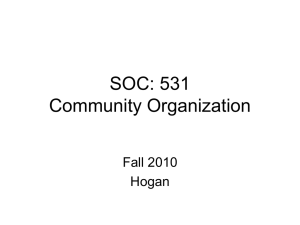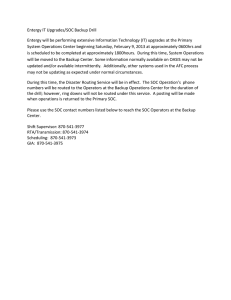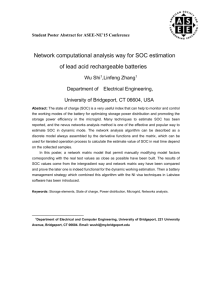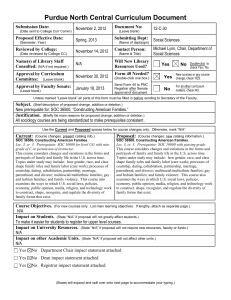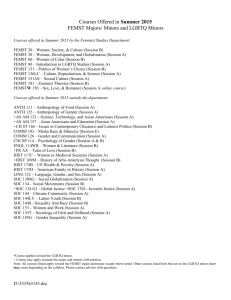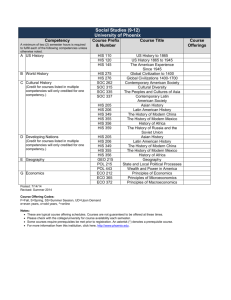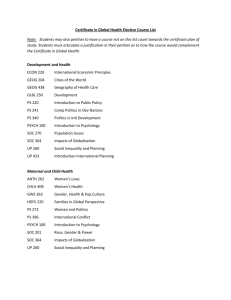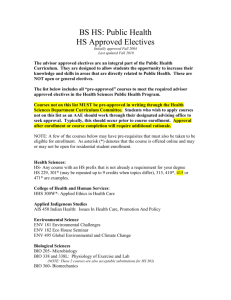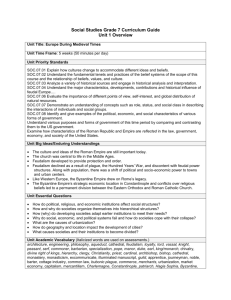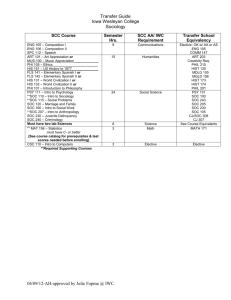DEPARTMENT OF HUMAN DEVELOPMENT AND FAMILY
advertisement
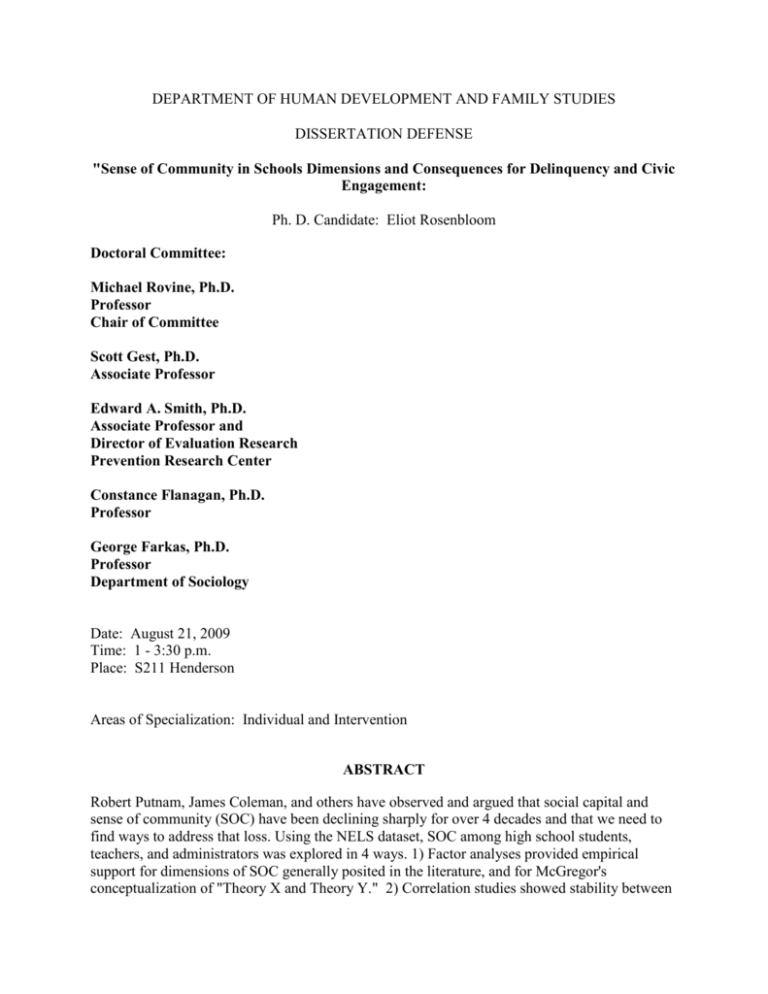
DEPARTMENT OF HUMAN DEVELOPMENT AND FAMILY STUDIES DISSERTATION DEFENSE "Sense of Community in Schools Dimensions and Consequences for Delinquency and Civic Engagement: Ph. D. Candidate: Eliot Rosenbloom Doctoral Committee: Michael Rovine, Ph.D. Professor Chair of Committee Scott Gest, Ph.D. Associate Professor Edward A. Smith, Ph.D. Associate Professor and Director of Evaluation Research Prevention Research Center Constance Flanagan, Ph.D. Professor George Farkas, Ph.D. Professor Department of Sociology Date: August 21, 2009 Time: 1 - 3:30 p.m. Place: S211 Henderson Areas of Specialization: Individual and Intervention ABSTRACT Robert Putnam, James Coleman, and others have observed and argued that social capital and sense of community (SOC) have been declining sharply for over 4 decades and that we need to find ways to address that loss. Using the NELS dataset, SOC among high school students, teachers, and administrators was explored in 4 ways. 1) Factor analyses provided empirical support for dimensions of SOC generally posited in the literature, and for McGregor's conceptualization of "Theory X and Theory Y." 2) Correlation studies showed stability between Grade 10 and Grade 12 scores (for each group separately) and associations between average scores for each group. 3) Multilevel regressions showed a consistent negative effect of student SOC on 3 types of delinquency (based on severity) as expected, but a more complex effect of teacher SOC. 4) Effects on voting tendency (2 years post high school) were positive for both SSOC and T-SOC, but effects on volunteering were nonsignificant. Mediation and suppression effects were both observed. Results shed light upon the benefits and drawbacks of SOC and functional community and the need to understand these in efforts to foster SOC and civic engagement and reduce delinquency.
